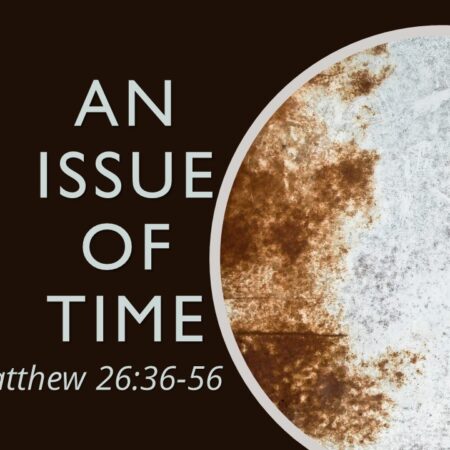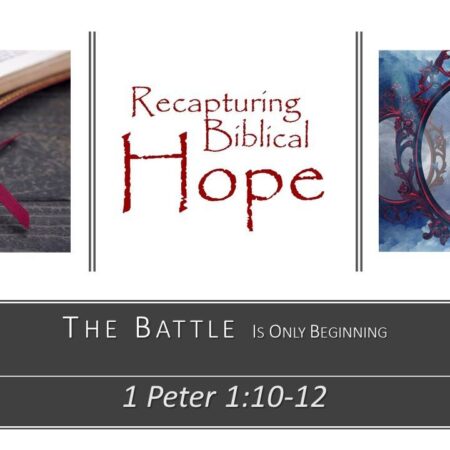1 Peter 1:3-7 James 1:2-4 James 1:12-15 Matthew 4:1-11 “We are being guarded by God’s power THROUGH FAITH.” Os Guiness in his book “The Call” writes: “All truth in a fallen…
"Temptations" Tagged Sermons
Dallas Willard “The Allure of Gentleness”
Therefore; Christianity is false, since God is either not benevolent or not powerful, to which the presence of suffering testifies.
“God’s love is not a sentiment, but a well-reasoned devotion to the good or well-being of its objects. We have a terrible time understanding love, because we confuse it with desire. DESIRE AND LOVE ARE TWO UTTERLY DIFFERENT KINDS OF THINGS. Not only is desire not love; it is often OPPOSED to love.
Right action is the act of love, regardless of the desires of anyone involved.
Jeremy Bentham is his book: “Intro to the Principles of Morals and Legislation” writes:
“Nature has placed mankind under the governance of two sovereign masters, pain and pleasure. It is for them alone to point out what we ought to do, as well as to determine what we shall do. On the one hand the standard of right and wrong, on the other the chain of causes and effects, are fastened to their throne. They govern us in all we do, in all we say, in all we think; every effort we can make to throw off our subjection will serve but to demonstrate and confirm it. In words a man may pretend to abjure their empire; but in reality, he will remain subject to it all the while.”
Dallas Willard writes:
“It is only in the heat of pain and suffering, both mental and physical, that real human character is forged. One does not develop:
• courage without facing danger,
• patience without trials,
• wisdom without heart- and brain-racking puzzles,
• endurance without suffering
• temperance and honesty without temptations.
These are the very things we treasure most about people. Ask yourself if you would be willing to be devoid of all these virtues. If your answer is no, then don’t scorn the means of obtaining them.
The gold of human character is dug from torturous mines, but its dung and dirt are quite easily come by. And it should come as no surprise to us that in our time – the time of the great flight from pain, such virtues as these are conspicuous only by their absence.
I’m not saying that we should go looking for pain, so that we can develop character. This is not at all necessary. All we need to do is make an honest and thorough effort do discover what is right and wrong, good and bad, when we are convinced on these points, then simply go out and face life for what it is worth. There will be plenty of opportunity to develop character.”
C.S. Lewis in his book “The Problem of Pain” writes:
“It is a serious thing to live in a society of possible gods and goddesses, to remember that the dullest, most uninteresting person you talk to may one day be a creature which, if you saw it now, you would be strongly tempted to worship, or else horror and a corruption such as you now meet, if at all, only in a nightmare. All day long we are, in some degree, helping each other to one or the other of these destinations….
There are no ordinary people. You have never talked to a mere mortal. Nations, cultures, arts, civilizations – these are mortal, and their life is to ours as the life of a gnat. But it is immortals whom we joke with, work with, marry, snub, and exploit – immortal horrors or everlasting splendors……..
YOUR NEIGHBOR IS THE HOLIEST OBJECT PRESENTED TO YOUR SENSES.”
Carmen Joy Imes in her book “Bearing God’s Name” writes:
“Matthew’s gospel breaks neatly into five blocks of teaching, mimicking the five books of the Torah (Genesis, Exodus, Leviticus, Numbers, Deuteronomy).
These five blocks of teaching are preceded by an introductory story in which Jesus’ life is in danger because King Herod, like Pharaoh, is killing Jewish babies. To escape, his parents take him to Egypt. It’s an inside-out Exodus story. When the coast is clear, they return to Palestine, retracting Israel’s journey from Egypt to the promised land. Next, we fast forward to Jesus’ adulthood, where he passes through the waters of baptism in the Jordan, reminding us of Israel’s crossing both the Red Sea and the Jordan.
After this, Jesus is sent by the Spirit into the wilderness for forty days, where he reenacts Israel’s wilderness wanderings.”
Baptism does not produce salvation in this text, Rather, it corresponds to something that does, THE DEATH OF JESUS (v 19) and the RESURRECTION (v 21)
“Baptism saves” if one makes a decision; a pledge of loyalty oath,
a public proclamation of who is on the Lord’s side in the cosmic war between good and evil.
Every Baptism is therefore a reiteration of the past and future doom of the Watchers in the wake of the gospel and the kingdom of God.
Early Christians understood the typology of this passage and its link back to 1 Enoch and Genesis 6:1-4.
This is why early baptismal formulas included a renunciation of Satan and his angels. Baptism was anything but routine. It was a symbol of spiritual warfare.” Dr. Michael Heiser “Reversing Hermon”
Who is Azazel?
We find the Biblical text in Leviticus 16:7-10
“And Aaron shall take the two goats, and he shall present them before Yahweh at the tent of assembly’s entrance. Then Aaron shall cast lots for the two goats: one lot for Yahweh and one for Azazel. And Aaron shall present the goat on which the lot for Yahweh fell, and he shall sacrifice it as a sin offering. But the must present alive before Yahweh the goat on which the lot for Azazel fell to make atonement for himself, to send it away into the desert to Azazel.”
R.T. France
“His Father is testing him in the school of privation, and his triumphant rebuttal of the devil’s suggestions will ensure that the filial bond can survive in spite of the conflict that lies ahead.”
Dr. Michael Heiser in the “Unseen Realm” makes this comment about that temptation:
“Had Jesus given in, it would have been an acknowledgment that Satan’s permission was needed to possess the nations. It wasn’t. Satan presumed power and ownership of something that, ultimately, was not his but God’s. The messaging behind Jesus’ answer is clear: Yahweh will take the nations back by his own means in his own time. He doesn’t need them to be given away in a bargain. Jesus was loyal to his Father.”
Matthew 26:36-56 Matthew 21:9 Colossians 1:15-10 Luke 4:1-13 Deuteronomy 8:3 Deuteronomy 6:16-17 Deuteronomy 6:13 John 12:31 Luke 13:32 Matthew 26:30-35 Mark 13:35-37 Mark 14:26-31 Matthew 27:15-26
Question of the week:
In Exodus, chapters 19-20 we read that God Almighty inaugurated a covenant with Moses, which we know as the OLD COVENANT. This took place on top of Mount Sinai. WHEN was the NEW COVENANT inaugurated and with WHOM?





